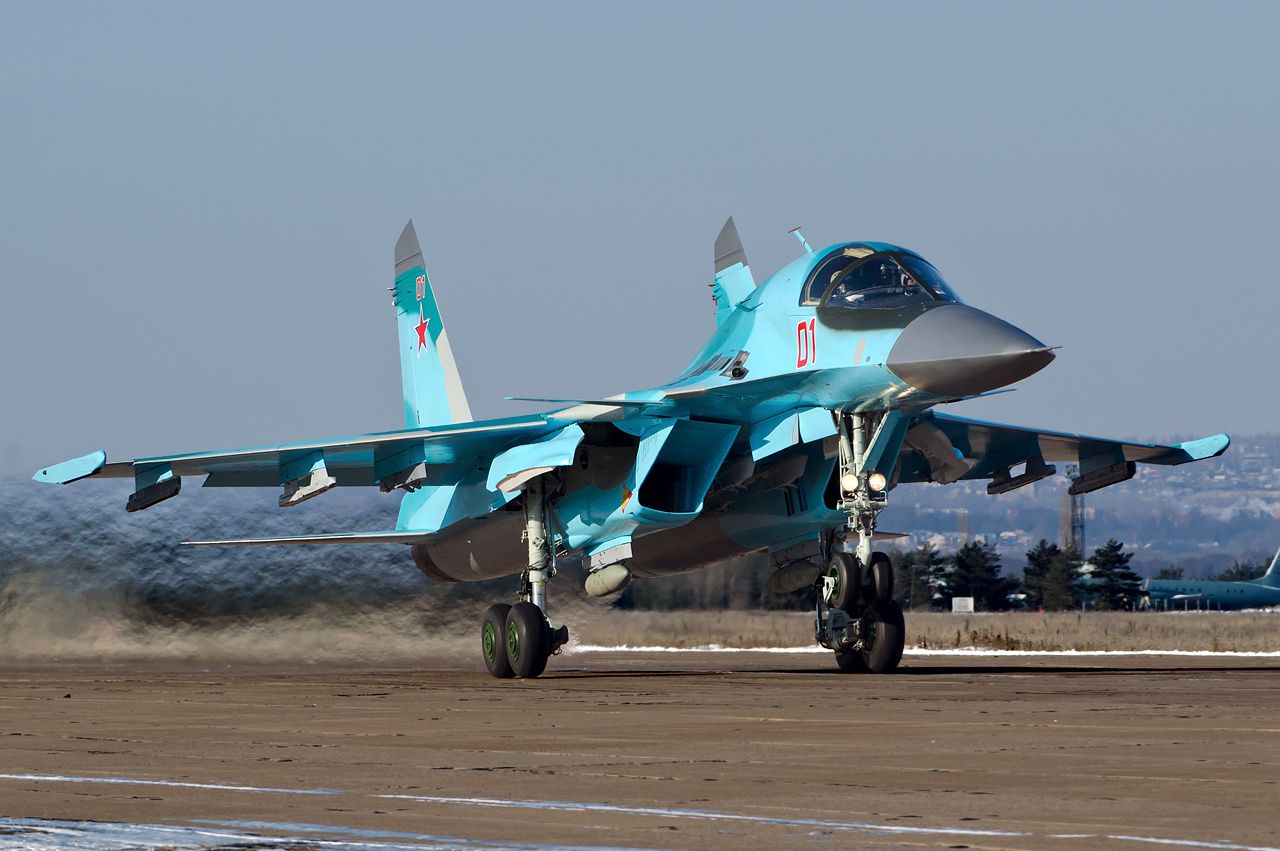Russia’s Su-34 fighter-bombers, which proved highly effective in the fight against terrorists in Syria, will be upgraded with new avionics, military expert Boris Rozhin told Sputnik.
“The share of modern weapons systems in our Aerospace Forces is about 66 percent now, and is slated to reach 70 percent by 2020,” Rozhin said.
He emphasized the role of new technology now being introduced in the Russian Armed Forces, and said that the experience of the aerial campaign in Syria would help in the modernization of existing combat aircraft.
“I understand that the designers will have the experience of the Syrian campaign very much in mind when upgrading the Su-34, which is going to have new avionics and computer systems that age very fast,” Rozhin emphasized.
The Syrian operation also revealed a shortage of combat pilots – a problem Defense Minister Sergei Shoigu promised to resolve before next year.
Earlier this week, Russian Deputy Defense Minister Yury Borisov said that Russia’s Aerospace Forces will get 16 new Su-34 fighter bombers before the end of 2017, while the modernization of the aircraft will start in 2018.
According to the deputy defense minister, the Novosibirsk Aircraft Production Association has a long-term contract with the Russian Defense Ministry for the production of a total of 92 Su-34 strike fighters.
“The Su-34 has been highly effective during the operation in Syria, has a huge potential for modernization and is essentially a new generation plane,” Borisov added.
“We are now in the final stages of our work to install new weapons system on the Su-34s,” Borisov noted. He also mentioned the great deal of foreign interest in buying Su-34s.
Commissioned in 2014, the Sukhoi Su-34 has already proven itself as a capable strike fighter capable of destroying ground, sea and airborne targets round the clock and in any weather.
The 45 ton, Mach 1.8-capable Su-34, designed to carry up to 8 tons of weaponry, has a tactical radius of 4,000 km, and a flight ceiling of 18,000 meters.
The plane can also be equipped with up to three additional fuel tanks, allowing it to fly 8 hours without refueling.










